Filter by
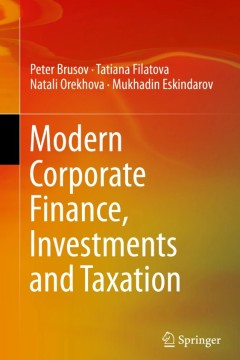
Modern Corporate Finance, Investments and Taxation
This monograph is devoted to the modern theory of capital cost and capital structure and its application to the real economy. In particular, it presents a possible explanation to the causes of global financial crisis. The authors of the book modify the theory of Nobel Prize winners Modigliani and Miller to describe an alternative theory of capital cost and capital structure that can be applied …
- Edition
- 1
- ISBN/ISSN
- 978-3-319-38395-8
- Collation
- XVI, 368
- Series Title
- -
- Call Number
- -
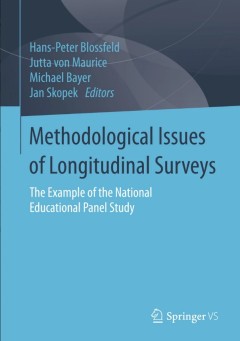
Methodological Issues of Longitudinal Surveys The Example of the National Edu…
This book addresses a broad array of pressing challenges of longitudinal surveys and provides innovative solutions to methodological problems based on the example of the NEPS. It covers longitudinal issues such as sampling, weighting, recruiting and fieldwork management, the design of longitudinal surveys and the implementation of constructs, conducting competence tests over the life course, ef…
- Edition
- 1
- ISBN/ISSN
- 978-3-658-11992-8
- Collation
- XIV, 741
- Series Title
- -
- Call Number
- -
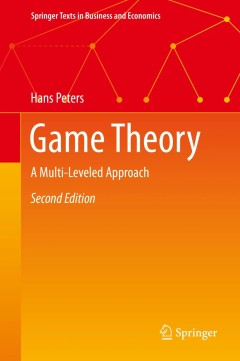
Game Theory
“It can be used at an advanced undergraduate course or a graduate course. … I found the book very well written and appropriate for a game theory course focused on business and economics students and applications. Some of the problems are very challenging but most of them are at the appropriate level and the reader will have some fun and learn from them. This is a book that I recommend if yo…
- Edition
- -
- ISBN/ISSN
- 978-3-662-46949-1
- Collation
- -
- Series Title
- -
- Call Number
- 300

Electronic Government 14th IFIP WG 8.5 International Conference, EGOV 2015, …
This book constitutes the refereed proceedings of the 14th IFIP WG 8.5 International Conference on Electronic Government, EGOV 2015, held in Thessaloniki, Greece, in August/September 2015 in conjunction with the 7th International Conference on eParticipation, ePart 2015. The 25 revised full papers presented were carefully reviewed and selected from 53 submissions. The papers have been organized…
- Edition
- 1
- ISBN/ISSN
- 978-3-319-22479-4
- Collation
- 37 b/w illustrations
- Series Title
- -
- Call Number
- -

Modeling Markets
This book is about how models can be developed to represent demand and supply on markets, where the emphasis is on demand models. Its primary focus is on models that can be used by managers to support marketing deciions.Modeling Markets presents a comprehensive overview of the tools and methodologies that managers can use in decision making. It has long been known that even simple models outper…
- Edition
- 1
- ISBN/ISSN
- 978-1-4939-2085-3
- Collation
- XIV, 408
- Series Title
- International Series in Quantitative Marketing
- Call Number
- -
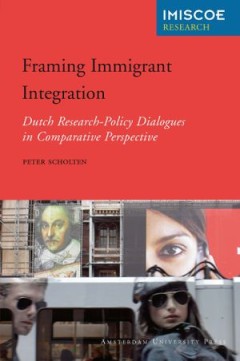
Framing Immigrant Integration
Debates on immigrant integration are often caught up in what academics and politicians like to call 'national models of integration'. Researchers and policymakers long for common ground. In the Netherlands, their symbiosis is fed by multiculturalism, something for which Dutch society has long been seen as exemplary. Still, the incorporation of migrants remains one of the country's most pressing…
- Edition
- -
- ISBN/ISSN
- 9789089642844
- Collation
- -
- Series Title
- -
- Call Number
- -
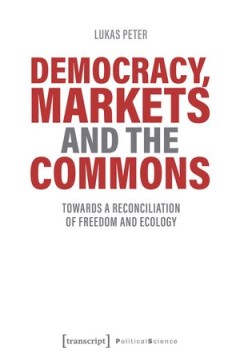
Democracy, Markets and the Commons : Towards a Reconciliation of Freedom and …
How can we overcome the existing political, economic, and ecological crises that humanity faces? With the notion of the commons, Lukas Peter argues that this form of social organization can provide answers to the shortcomings of centralized states and open and competitive markets. By building on and going beyond the work of Elinor and Vincent Ostrom, he develops an ecological understanding of t…
- Edition
- -
- ISBN/ISSN
- 9783839454244
- Collation
- -
- Series Title
- -
- Call Number
- 650
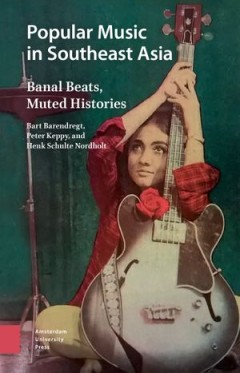
Popular Music in Southeast Asia: banal beats, muted histories
From the 1920s on, popular music in Southeast Asia was a mass-audience phenomenon that drew new connections between indigenous musical styles and contemporary genres from elsewhere to create new, hybrid forms. This book presents a cultural history of modern Southeast Asia from the vantage point of popular music, considering not just singers and musicians but their fans as well, showing how the …
- Edition
- -
- ISBN/ISSN
- 9789048534555
- Collation
- -
- Series Title
- -
- Call Number
- 780
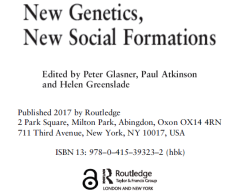
New Genetics, New Social Formations
New genetic technologies cut across a range of public regulatory domains and private lifeworlds, often appearing to generate an institutional void in response to the complex challenges they pose. As a result, a number of new social formations are being developed to legitimate public engagement and avoid the perceived democratic deficit that may result.
- Edition
- -
- ISBN/ISSN
- 9780203962893
- Collation
- -
- Series Title
- -
- Call Number
- T 304.5 GLA n c
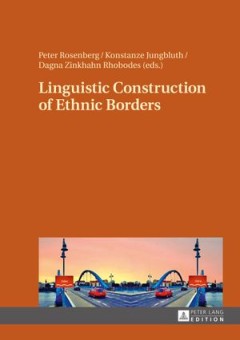
Linguistic Construction of Ethnic Borders
This volume focuses on the linguistic constructs involved in ethnic borders. Ethnic borders have proven themselves to be surprisingly long-lived: in nearly all European countries and beyond, border demarcation, exclusion of foreigners, and minority conflicts are some of the most persistent challenges for nations and societies. Which linguistic factors play a role in the formation of these borde…
- Edition
- -
- ISBN/ISSN
- 978-3-653-04595-6
- Collation
- -
- Series Title
- -
- Call Number
- 306.440 89 LIN
 Computer Science, Information & General Works
Computer Science, Information & General Works  Philosophy & Psychology
Philosophy & Psychology  Religion
Religion  Social Sciences
Social Sciences  Language
Language  Pure Science
Pure Science  Applied Sciences
Applied Sciences  Art & Recreation
Art & Recreation  Literature
Literature  History & Geography
History & Geography